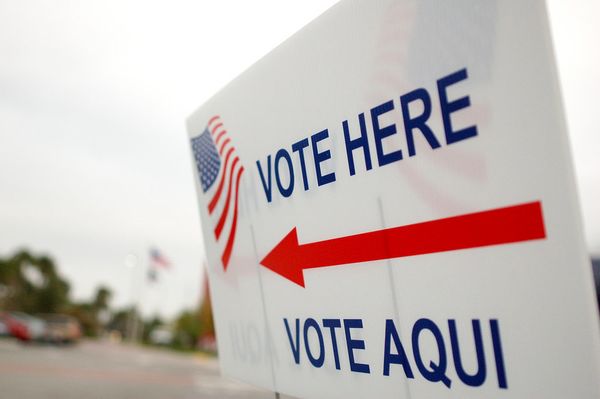I believe that everyone who grew up with access to the Internet, has, at some point, looked up their health ailments online, particularly WebMD, and diagnosed themselves with a severe illness.
My friend John, a long time ago, in high school, confided that his deepest fear was having cancer. And he often fed into those fears when he went onto WebMD and looked up possible diagnoses of his latest cough: lung cancer. His latest rash? Skin cancer. I know I have done the same with mental illnesses, and in middle school, I self-diagnosed my various insecurities and trepidations with everything from major depressive disorder to obsessive-compulsive disorder (OCD) to general anxiety to borderline personality disorder. My incredibly loud stomach growling? Irritable bowel syndrome.
The phenomenon of self-diagnosis isn't all bad since it is a cheaper and obviously more accessible option to, well, actually seeing the doctor. I went a few years in high school without health insurance, and I have been graced by God with perfectly good physical health, if I were to actually want to get a physical check-up at the time, it would have simply been unaffordable. "In many cases, information can be good," Dr. Michael Munger, president of the American Academy of Family Physicians states. But this comes with a caveat: this information online is only good as a collaboration between physicians and care teams.
When you or I try to diagnose or treat our health problems online, a big issue is that the symptoms we enter are incredibly vague, and only doctors are capable of investigating further. Ben Greenberg, the vice president of user experience at WebMD, states that the most commonly searched symptoms on the website are bloating, cough, diarrhea, dizziness, fatigue, nausea, and headache. And these digital diagnosing tools are only accurate 51% of the time, as found in a 2015 study at Harvard Medical School, and this is especially problematic when more than a third of U.S. adults have used the Internet to discover their medical condition.
Caira Conner, writing for Elemental, a Medium publication for science-backed health coverage, writes about the secret appeal behind diagnosing yourself on the Internet. In her three different mysterious chronic illnesses, "the struggle to figure out what was wrong drove me further down the online rabbit hole." Her article reframed the way I thought about online medical self-diagnosis, because even having some answer, a wrong or imperfect one, is sometimes better than having no answer.
Dr. Mehrotra, the doctor who found that digital diagnosing tools are only about half accurate, wasn't even convinced that online self-diagnosis was bad. "[The inaccuracy] doesn't mean that people shouldn't use the tools at all. They are better than not getting any input at all, so people just have to use them as one additional piece of information about their health."
That latter statement by Mehrotra captures my own thought process perfectly because in middle school, I definitely just needed answers. It didn't matter whether they were wrong. It didn't matter whether they eventually would send me backward. All I knew was that I couldn't move forward with an answer, and that was the appeal to the self-diagnosis, the alleviation of uncertainty.
Conner puts it beautifully, that in imagining a scenario in front of her, "I'd be able to calm down and move forward." Her first anecdote starts with a cough that lingered for a while, one that began to deepen and making her lose her voice. The front-runner possibilities were chronic bronchitis and acid reflux, and her reaction to those possibilities was this:
"I was relieved. Both possibilities made sense. Both were fixable. Both offered a path forward. I had treatments I could research and remedies I could buy."
She had played detective with her medical symptoms before, and two years before, her exhaustion would segue into being diagnosed by a nutritionist with Type I diabetes. Four years before, insomnia and twitching would segue into Graves' disease. Before both diagnoses, she'd done her own research about what could possibly be wrong. And then comes the twist of Conner's article:
Her research actually sent her in the other direction. "I'd become less calm, less convinced the truth would come out, and less sure I wasn't inadvertently doing something to make myself feel worse." There is a catch-22 that "what makes a patient feel more in control can make a doctor's job more difficult," and the whole point of seeing a doctor is not so we can rely on ourselves but on a professional because we ourselves as very capable of doing more harm than good for ourselves.
But even though we might not be getting the right answer, Conner again echoes the sentiment perfectly: "I needed any answer. I needed possibility -- the knowledge that I could get myself to a reality where I felt better than I did right then." Dr. Anthony Termine, a diplomate of the American Board of Psychiatry and Neurology, described the obsession in the absence of a diagnosis as a "psychological reaction, from feeling stuck in a prison of uncertainty, and limbo."
And another issue that comes is the wait times accompanying seeing our doctors and specialists. For her cough, Conner had to see a rheumatologist, and her wait time for doing so was 21 days. "I didn't have the emotional fortitude to wait 21 days for 20 minutes with my rheumatologist," she writes. That realization led her to directly go online. So many of our medical problems are in the triage realm where we're required to wait a very long time to get attention for them. Your latest cough probably isn't life-threatening, and that pain in your knee is something you can usually navigate around.
On a more personal and direct level, my school, Emory University, had a waiting list of approximately 100 students at our counseling services at the beginning of my last semester here. I knew people personally who had to wait six weeks for a counseling appointment, told that their struggles through mental illness were "really bad" but also that our school's counseling center had limited means to help those students. At the same time, our school administration spent millions of dollars constructing new buildings, a terrible message to how much it cared about our student body.
So what is someone to do or think when they have to wait six weeks for a mental health appointment? Well, the first thing I would do is to go online and look at symptoms during our times of, in Conner's words, "functional madness." I want to see if I'm depressed or have OCD and what to do about it if either of those diagnoses are true, and dabble in my hand at playing God. It isn't the right thing to do, but it's accessible, and in times of perceived futility and helplessness, accessibility is what is most valuable to us.
Sure, our lives might be illuminated and our problems will, one day, all make sense when we actually go to see the doctor and talk things through with trained professionals. But until then, when our ailment and its symptoms are driving us insane, what other choice do we have than to go online?



















